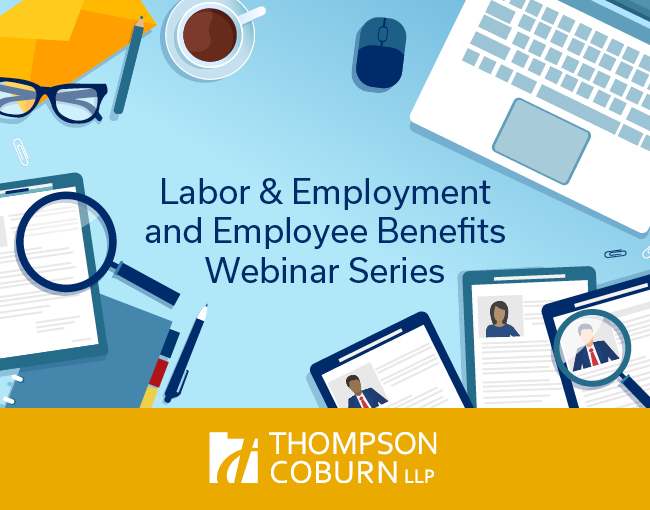
Labor, Employment and Employee Benefits Supreme Court Review
Webinar
2020 has seen an inordinate number of Supreme Court oral arguments and decisions addressing important ERISA issues. In its opinions the Supreme Court has explained what ERISA means by “actual knowledge,” has confirmed the authority of Health and Human Services to promulgate rules significantly affecting the ACA and has limited a participant’s ability to bring suit against her pension plan. And this fall the Court will hear arguments in cases that could result in higher drug prices and lead to the demise of the ACA. The Eighth Circuit too has tackled ERISA issues of national significance. We will highlight why these cases have practical significance to those who administer ERISA plans, and discuss how all these cases impact your human resources department.
2020 also saw critical Supreme Court decisions regarding labor and employment issues. Most notably, the Court recognized that Title VII protects individuals who are discriminated against due their sexual orientation or gender identity. But the Court also limited the reach of the nation’s anti-discrimination laws, holding that religious schools are exempt from lawsuits alleging that teachers who spend part of their time providing religious instructions were terminated due to age or disability. In this session, we will address the rationale underlying these decisions as well as their implications for future cases.
CLE
The live presentation of this webinar was approved for 1.0 hours of general CLE credit in California and Illinois and 1.2 hours of general CLE credit in Missouri. 1.0 hour of general CLE credit in Texas is pending. CLE credit is no longer available for this recording.
Presenters:
Cliff Godiner
Rick Pautler
Originally Presented:
November 5, 2020
